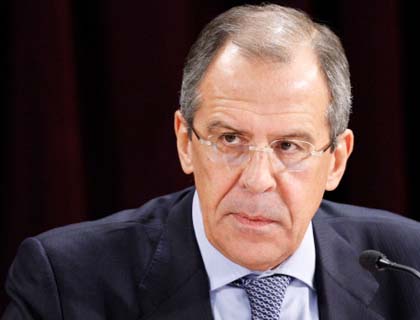MOSCOW - The United States is aggravating the HIV/AIDS problem in Russia and the West by refusing to use its forces to destroy opium crops in Afghanistan, Russian Foreign Minister Sergei Lavrov said on Monday.
Lavrov made Russia's persistent case for poppy crop eradication by U.S. and NATO forces in Afghanistan at a conference on communicable diseases in the eastern Europe and Central Asia region, where AIDS is a growing problem.
"It is hard for us to understand why our American partners don't want the International Security Assistance Force to do this," he said. "This issue is crucial to the fight against the drug threat and, consequently, the spread of HIV/AIDS."
Afghanistan is the world's biggest producer of poppies used to make opium, the key ingredient in the production of heroin. Russia is the largest per capita consumer of the drug and faces an HIV/AIDS epidemic that is spreading from dirty needles.
"The tragedy of the situation lies in the fact that in Europe, young people ... are getting this disease because of the spread of drugs," Lavrov said, adding that "we must fight not only the use but also the spread of drugs."
Russia, which fought a decade-long war in Afghanistan in the 1980s, is supporting the Western military campaign in Afghanistan by providing transit routes for personnel and supplies.
It says the United States made a big mistake when it reversed its anti-drug strategy in 2009 by phasing out crop eradication efforts to focus instead on intercepting drugs and hunting production operations and drug lords.
The Unites States said it made the change because drug crop eradication was not damaging the Taliban insurgency but was putting farmers out of work, sowing resentment against foreign intervention.
Russia says it opposes a long-term Western military presence in Afghanistan, but has also expressed fears that the spread of drugs and Islamist militancy toward its borders could worsen if NATO forces leave without first ensuring stability. a

